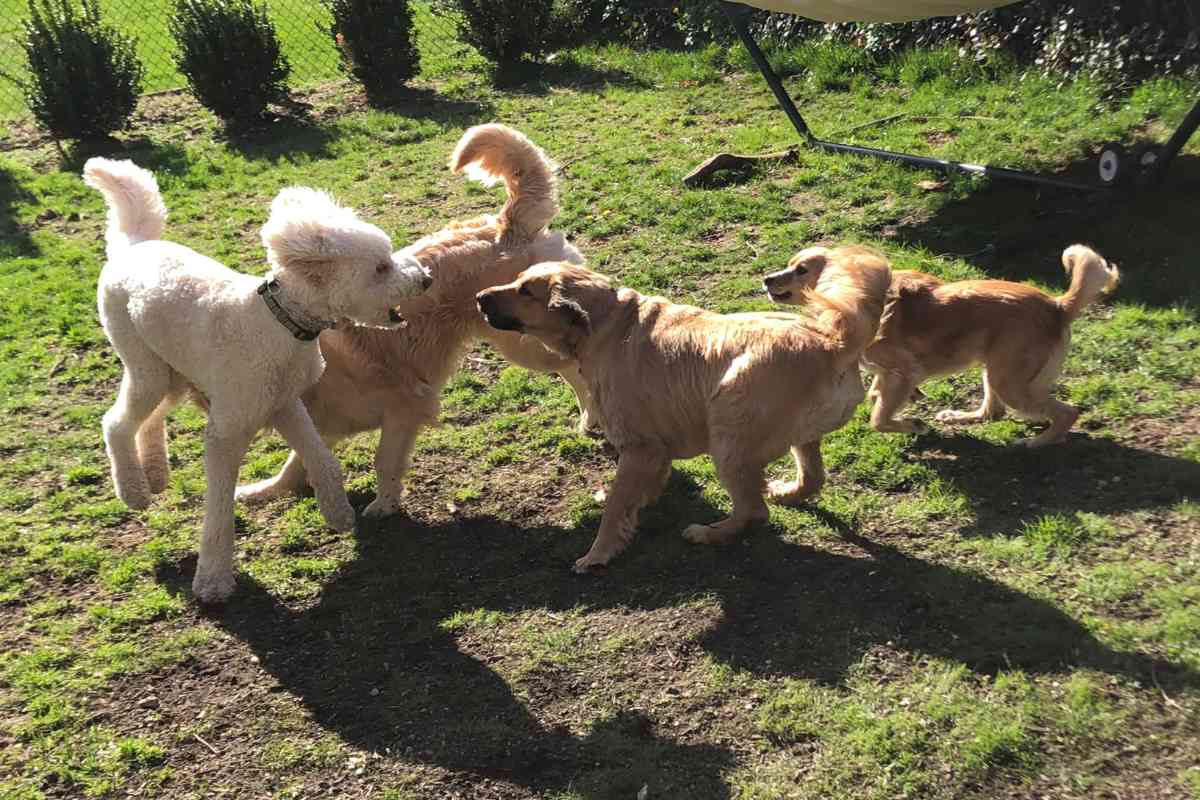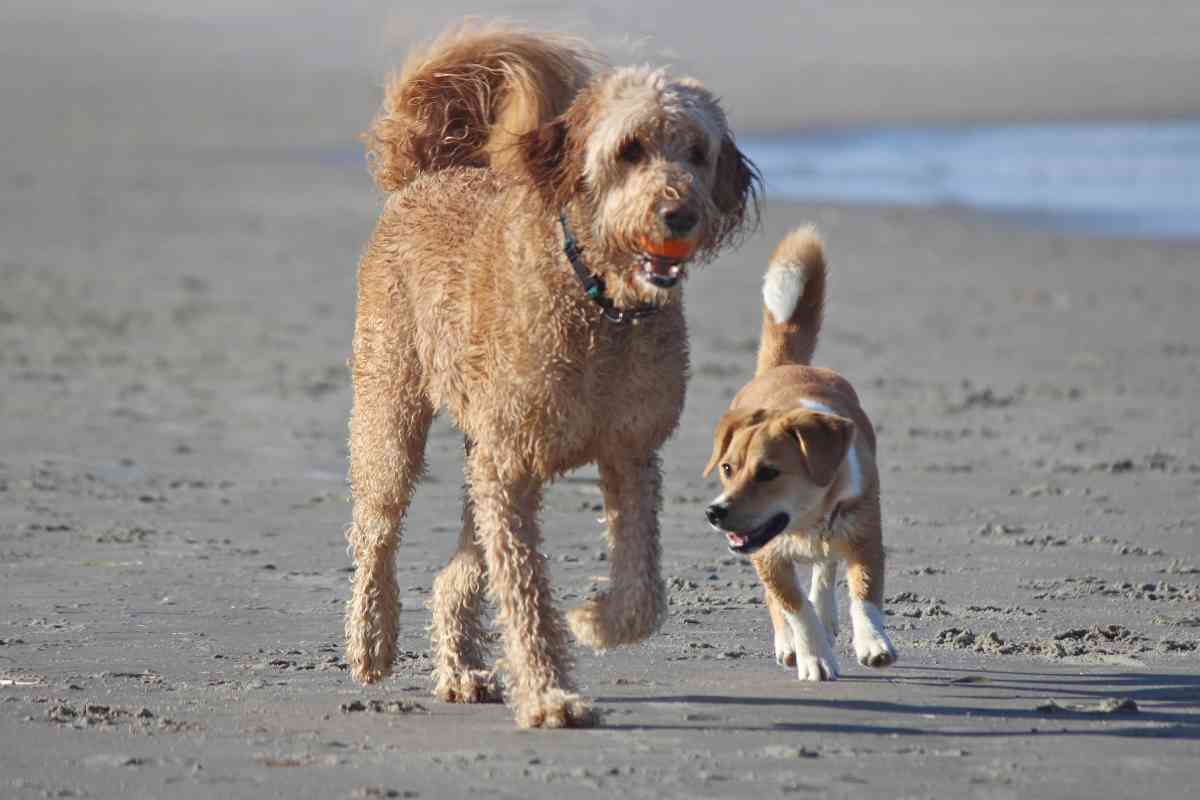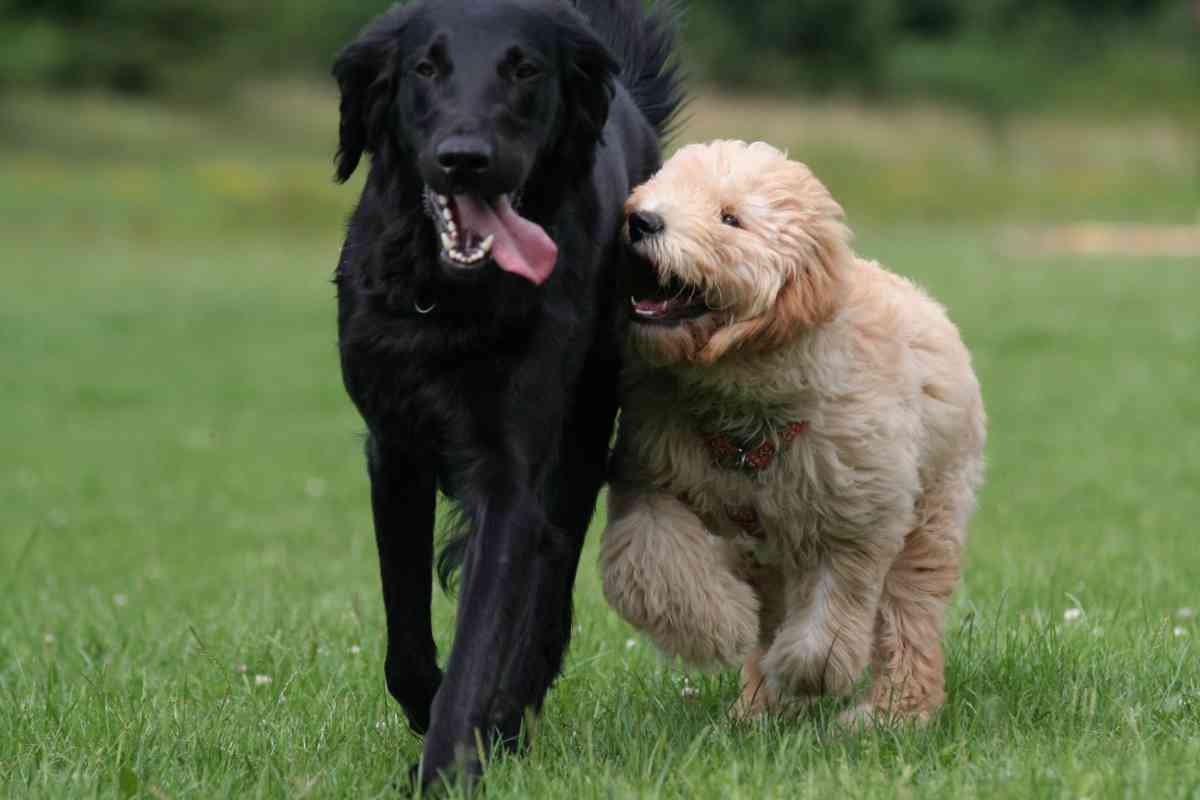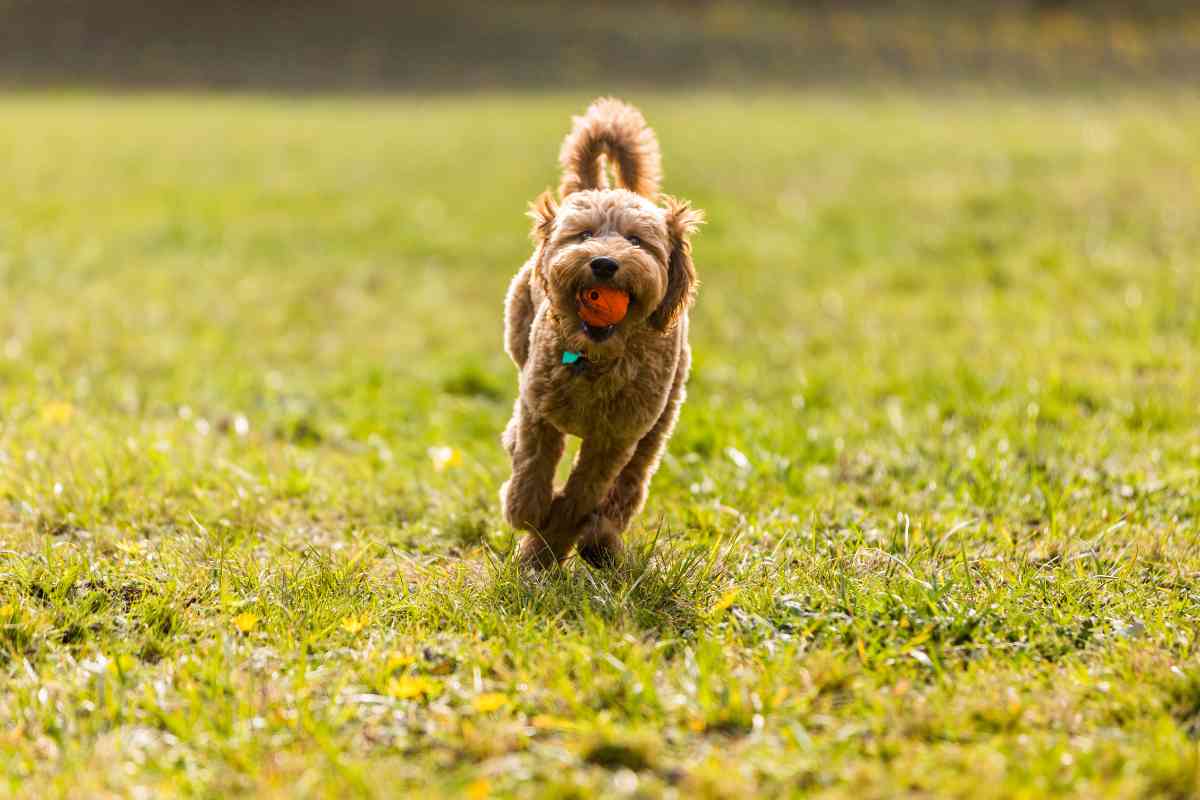Goldendoodle Socialization: How to Raise a Well-Adjusted and Happy Puppy
It’s important to bring a puppy up the right way. What should a dog owner know about Goldendoodle socialization?

Why is it important to socialize a Goldendoodle puppy?
If you socialize your puppy early, it may remain a well-behaved dog for life. Without early socialization, it may be badly behaved. It is difficult to train an adult dog to behave better if you miss this critical socialization period.
Goldendoodles are very friendly dogs, so they are easier to train than most other breeds. However, no breed will behave well if you bring it up badly. I have brought a few Goldendoodles up over the years and they need the right training.
Stages of Goldendoodle Socialization
Avoid too Early Young Puppy Socialization
If you are raising young puppies (3 to 8 weeks) yourself, don’t remove them from the litter too early. This will make the dog act nervous or bark a lot because it didn’t learn what it should have early in life.
The First Eight Weeks
At three to five weeks, your puppy should learn social interaction with other dogs. It should learn what different postures mean, what barking means, and other basic things. Again, this comes from the mother and the other puppies, not the owner.
At five to eight weeks, the puppy will learn to obey the pack’s leader. The mother dog will bark and growl at dogs to teach them lessons. It will learn more about how to interact with other dogs.

The First Fear Imprint Period
Between 8 and 11 weeks, the puppy goes through the first fear imprint period. This period is crucial and your dog may become either nervous or aggressive if you don’t give it the right guidance at this age. What the dog learns at this age might stay with them for life.
Keep the dog away from traumatic, painful, or frightening experiences at this age, because they can leave a big impact. You don’t want to end up with a nervous dog.
During the Frist Fear Imprint Period, You Should:
- Carefully expose your dog to new people and situations
- Emphasize positive experiences
- Teach your puppy that you are the leader and you can protect it
Seniority Classification Period
The seniority classification period (12-16 weeks) is when your dog tries to question your authority. It needs to see you as a strong leader during this time or it won’t obey you.
Learn how your dog reacts to your actions. Your body language can show leadership just as much as what you do and say.
Keep in mind that you need to be very careful exposing your young, unvaccinated puppy to other dogs. On a rigorous vaccine schedule, the earliest it’s safe for your puppy to play with other dogs is around 16 weeks.
Flight Instinct Period
During this time (4 to 8 months), your dog may suddenly start running away from you. You need to teach it that this isn’t right and it should stay near you when you want it to. Otherwise, your dog might be hard to control or get seriously hurt or killed.
Keep your dog on a leash during this time, unless it is in a confined area like a fenced yard. Possibly, a puppy training class could teach the dog to stay close.

Adolescent Period
During the adolescent period (7-10 months), your dog might rebel against your authority. It will once again test your leadership and see where it stands in the pack order.
Dogs love learning new things and having fun at this age. They have a lot of energy and need opportunities to use it.
Second Fear Imprint Period
During this time (6 to 14 months) your Goldendoodle will act more fearful and less confident. Don’t overreact to your dog acting fearful.
It is just a phase the dog will go through. Don’t comfort your dog too much and don’t get mad at your dog for acting scared. Overreacting now may make for a Goldendoodle with separation anxiety later.
Mature Adulthood
The dog’s personality continues to develop at one to three years of age. Even an unaggressive dog like a Goldendoodle may bark at this age.
They are learning to protect their turf. Giving your dog a job or sending them to a class at this age can help.
Puppy and Young Adult Dog Socialization Periods

Goldendoodles mature in the following stages:
| Age of dog | Socialization phase |
| 3 to 8 weeks | Toddler period |
| 7 to 12 weeks | Socialization period |
| 8 to 11 weeks | First fear imprint period |
| 12 to 16 weeks | Seniority classification period |
| 4 to 8 months | Flight instinct period |
| 7 to 10 months | Adolescence period |
| 6 to 14 months | Second fear imprint period |
| 1 to 3 years | Mature adulthood development period |
What is Crate Training?
Crate training is where you provide your dog with a crate to hide in when it is nervous. This helps your dog feel safe. You should not use the crate to punish your dog.
Is a Puppy Class Worth It?
Some people send their dogs to a “puppy kindergarten” to teach them to behave properly. While this is not required for proper socialization, it is usually a positive experience. A Goldendoodle puppy will enjoy being around other young pups and a new person.
Consider sending a new puppy or an older dog to a training class. A puppy class or older dog’s training class can teach your dog to behave better than you could teach it on your own. Your Goldendoodle puppies should also receive some obedience training at home.
Expose Your Dog to Unfamiliar Situations
Your dog needs to be carefully exposed to new sights and new sounds at a young age. Things like potty training also need to be done at the right time.
For example, a dog might hear power tools for the first time, encounter a new family, or be sent to new owners. It might get scared in these situations if it was not taught that unfamiliar situations are not a big deal.
Socialization With Other Dogs
A well-behaved dog is often exposed to other dogs, other animals, children, and different locations early in life. Puppy owners should train a doodle puppy to not get scared easily. Fear of the unfamiliar isn’t good for a dog’s well-being.
Key Takeaways
- Goldendoodles are usually well-behaved dogs.
- Any breed will behave badly if you bring it up wrong.
- Don’t be mean to your dog, but show leadership.
- Expose your dog to new experiences.
- Your dog is supposed to learn different things at different ages.